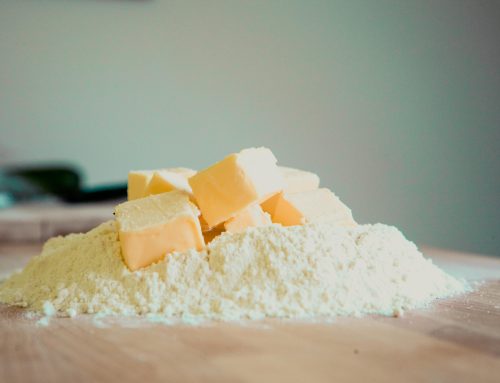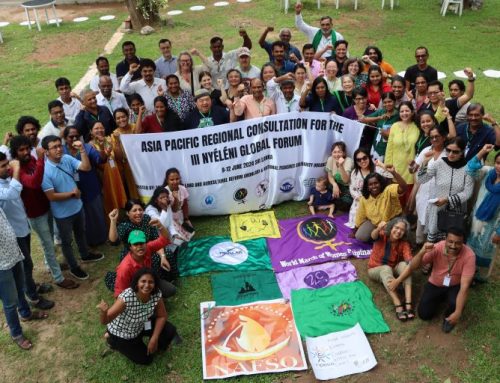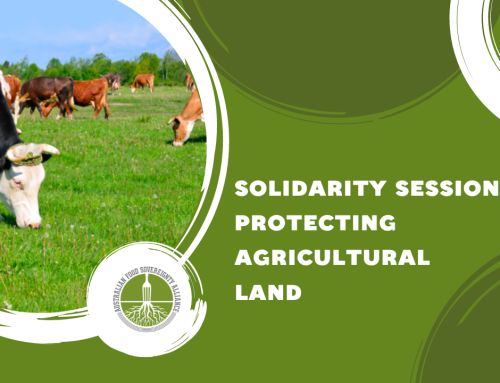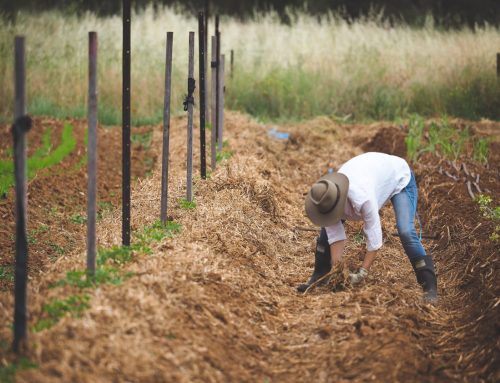Story by Russ Grayson, February 2015
AFTER I WROTE an article about would-be politician, Kirralie Smith, who then wanted to stand for Fred Nile’s party that caters to those occupying the distant badlands of Christianity, her links to anti-halal food campaign and to the permaculture design system, I thought I would go to my local Coles supermarket to see whether I could find any of the halal food she and her supporters wish to avoid, or any other food being marketed to other religious groups. It was curiousity, not an attempt to support or criticise what Kirralie says, that drove me into that big warehouse of industrialised shopping.
The issue for Kirralie and her supporters is the labeling of halal food, that certified as suitable for Moslems to eat, so that those wishing to do so can avoid buying it. Yet, at the same time, some of that mindset seem to want no labeling and pressure food processors to drop halal food altogether. Islam, however, isn’t the only religion that certifies its food. For Jews, it is kosher that is the approved food type. Christianity lacks any certification of food like this.
So I walked those long aisles in something of a haphazard fashion – this wasn’t a scientific enqiry, after, all, just an individual exercising his curiousity. And I did find food certified halal.
I found that in the Asian food section, an imported product produced by Passage Foods. Let me make it clear that this was an impressionistic, not a rigorous assessment of foods on offer. There may well have been additional halal foods that I missed.
I found something else, though. Kosher food. In quantity. A whole part of an aisle, and conspicuously labeled. And there was more in the refrigerator.
Halal objectors allege that halal certification schemes fund terrorism but they have failed to provide any authentic evidence at all, and in the lack of evidence it must remain an assertion, not a fact.
Labeling of food is not a bad idea in principle, and from a marketing perspective using a halal certification logo would likely increase sales to the 476,291 Moslems in Australia, 2.2 percent of the total population according to the 2011 census. But what about the kosher food lines in Coles? How were they identified?
A large sign shouting ’kosher’ attracted me to a large selection of the foods. Recalling Kerralie’s comments about libeling, I looked for and found that some lines carried a kosher certification logo. Others had a logo that probably was a kosher certification but it was in Hebrew, which means the great majority of Australians couldn’t really tell. That’s a disadvantage if, like those who would avoid halal foods, they wish to avoid kosher.
There was something else too — some lines in the kosher section carried no identifying notice at all on individual products that could certify their authenticity. Unlabeled, just like those halal lines Kerralie’s people complain about (just which are the guilty lines and who are the guilty manufacturers?). Interesting was the number imported from South Africa.
So, Coles does cater to the diets of religious minorities. Not that this should be surprising in Randwick because the Eastern Suburbs is home to a large portion of the 0.3 percent of the Australian population that describes itself as Jewish. That’s around 97,000, nationally. For Coles, it comes down to a marketing exercise and to the convenience of kosher-eaters.
My guess would be that if you went to a Coles in Bankstown, say, you might find a section labeled halal. I don’t know if that’s true (does someone want to go look?). Again, for the supermarket it would be a marketing exercise and a convenience for people who eat that food.
All is trivia
When you think about it, the whole halal labeling thing comes across as so much trivia. So do the claims of those who say it finances terrorism without providing verifiable evidence from authentic sources. They claim to know more about the subject and halal food’s alleged role in this than Australia’s police and security service, which has found no connection at all.
Why they focus on this trivia rather than thinking about how to counteract the appeal of Daesh (that roving gang of exterminators called the ’Islamic State’) to some Australian Moslems (hopefully, the security service hasn’t) can only be explained by the fact that halal labeling is low-hanging fruit, an easy target to prey on public fears around Islam and terrorism so as to gain the support of the fearful for an incipient anti-Islam party’s political agenda.
The hypocrisy of the halal-labelers is exposed when you compare the trivial proposal to label the food with their continuing to fuel their cars with oil, much of it probably from Saudi Arabia whose Salafist regime has been repeatedly linked to funding fundamentalist imams in the West with their teachings linked to the encouragement of terrorism and to militant and fundamentalist Islamic groups in the Middle East (see accompanying cartoon).
Halal, kosher, organic, vegan, junk… whatever people’s food choices, labeling is a good idea, mainly because it identifies food preferred by those following particular diets and so caters to their sovereignty of choice over what they eat (how about a ‘novel substance’ label for some of those foodlike products full of stuff whose names you could never pronounce?).
To do this, labeling, is not only good marketing sense for food processors, supermarkets and shops. It also reinforces that authentic freedom of choice over what you eat and feed your family that is critical to market economies and to your own food sovereignty.
Oh… before I forget… we made a coffee after I arrived home from my Coles expedition, and, as a treat, my partner added a little cream that I had bought at the supermarket. As she went to put it away, she stopped and said: “Oh, look at that! The jar says this cream is halal!”. I guess Moslems like a little milky treat with their coffee too.
[button_link url=”https://afsa.org.au/blog/2014/12/28/will-anti-islam-link-discredit-permaculture/” target=”” style=”” title=”” class=”” id=”” onclick=””]Related story…[/button_link]






